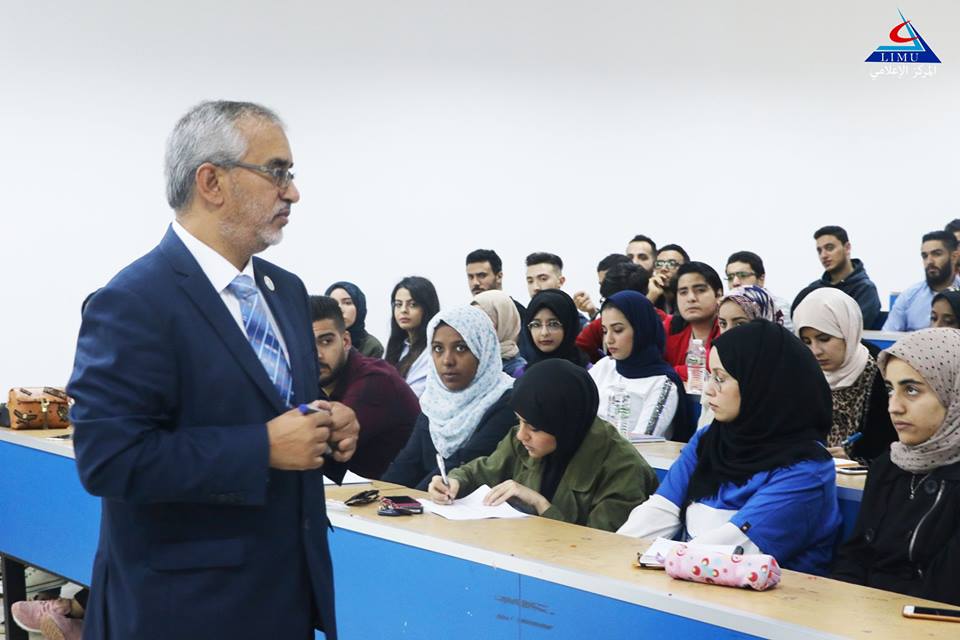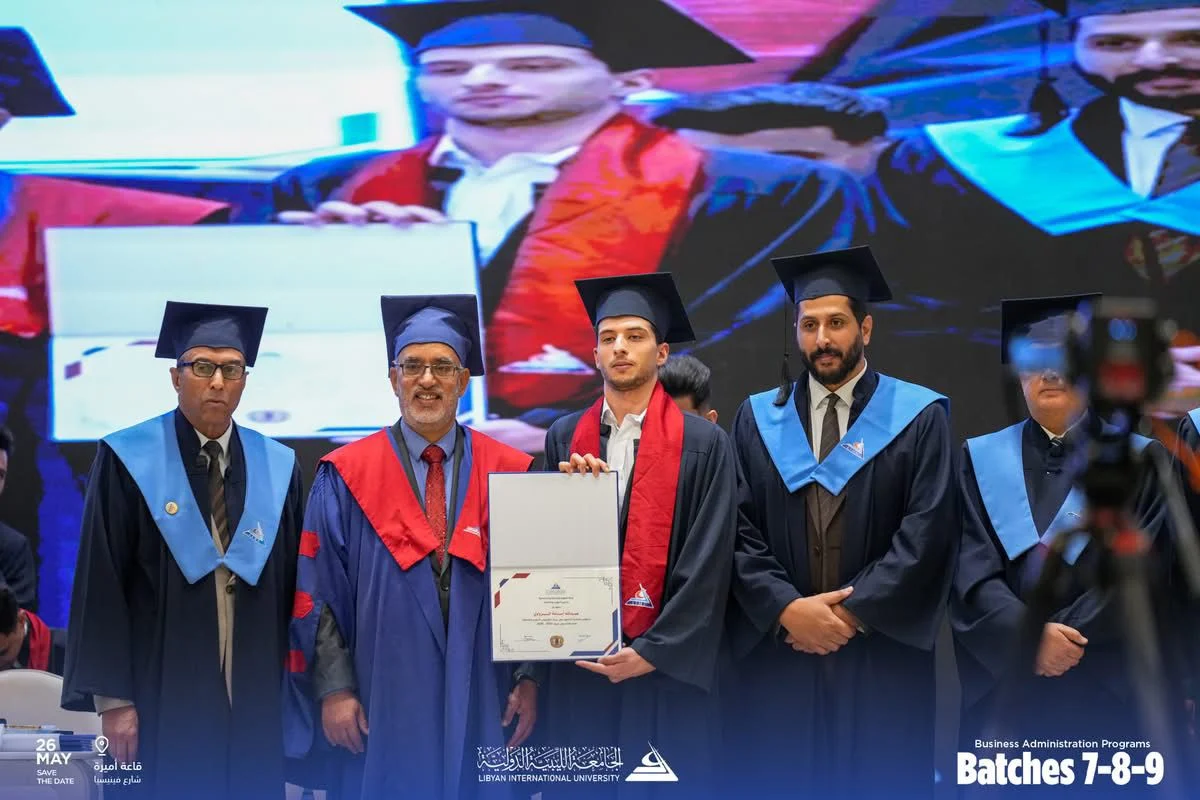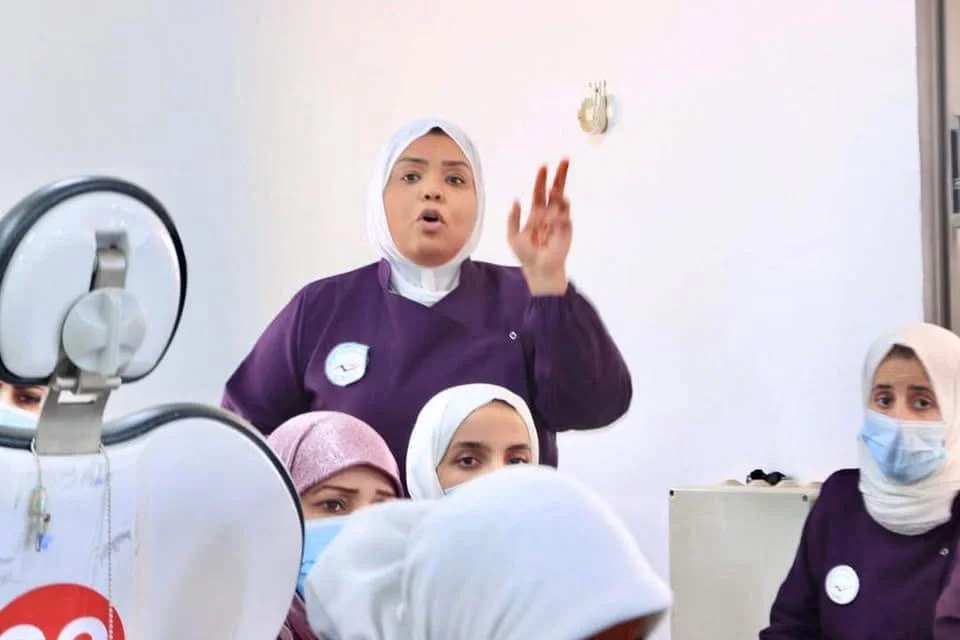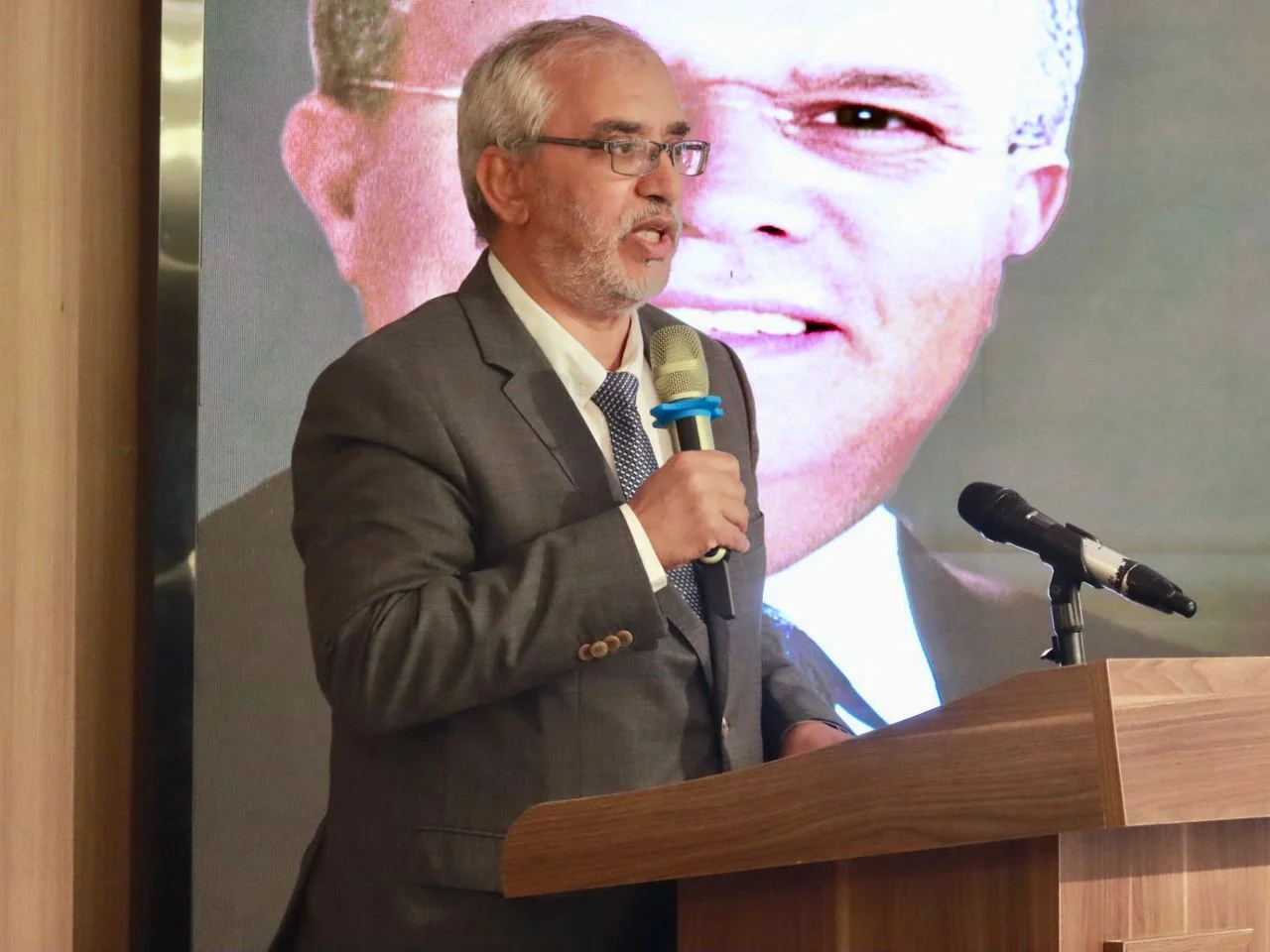The welcoming week, held by the Faculty of Medicine for students of the fourth year, was concluded on Thursday, November 17-22, and included a number of interactive lectures and meetings that focused on explaining the nature of the study and its educational methods and medical ethics.
It is worth mentioning that the Faculty of Basic Medical Sciences (BMS) at the Libyan International Medical University plays a key role in preparing the students of the first three years (preparatory) in the Faculty of Medicine.
It is noteworthy that the Faculty of Medicine at the Libyan International Medical University is ranked in the forefront of humanities accredited locally and regionally, in accordance with international quality standards and application of the latest strategies of teaching and learning, and the development of curricula and the system of study, which focuses on the practical aspect and attention to professional behavior, Health services, competent authorities and the community as a whole, providing expertise and assistance in the areas of service provision and training, scientific reference in conducting research, training of postgraduate students and providing expertise and assistance to them.
The Faculty also has its own programs and educational strategy aimed at graduating professionally qualified doctors in all medical specialties, equipped with the necessary knowledge of the health needs and priorities of the community to which they belong. They are professionally, socially qualified and possess the necessary mechanisms to acquire and apply basic supporting knowledge and skills, Community, effective clinical thinking, critical evaluation, good governance in decision making, the ability to cope with changing needs, and possess the skills of scientific research and learning mechanisms Will live a life of moral commitment to their local, regional and humanitarian environment and their knowledge of the legal rights of their patients.
The Faculty\’s education program is subject to continuous evaluation, and its results are used in the development of curricula, educational support services and faculty assessment. The Faculty of Medicine\’s educational program aims to be able to:
• Understand the general structure of the human body and the sites of the members and their spatial relationship to each other.
• Understand the microscopic structure of tissues and organs of the human body, including cell structure and genetic makeup.
• Identify the main functions of human body organs in their natural and pathological condition and adaptations that can occur as a result.
• Studying the possible relationship between the human body and its environment and the different interactions, whether natural or pathological, which may occur as a result.
• Understand the diseases that can affect the human and the different mechanisms of infection of different groups.
• Identify organisms and microbes and parasites that humans can coexist with or may infect.
• Study the drugs that can be used by humans in their struggle against the disease, the mechanisms of action of these drugs and their uses as well as the damage that can occur as a result of this use.
• Understand the importance and use of different diagnostic methods such as radiology and laboratories.
• Study the practical applications of diseases and their treatment.
• Acquire the skills and mechanisms necessary to operate independently according to the priorities and needs of the community.
• Acquire the necessary skills for scientific research and development.
It is noteworthy that the Faculty of Basic Medical Sciences BMS Libyan International University, plays a key role in preparing the students of the first three years Faculty of Medicine.
The College adopts (like other university colleges) a Problem Based Learning (PBL) strategy, according to the following system:
• The study is conducted according to the system of blocks distributed over five years of study followed by the year of supplementary training (excellence).
• Educational units are presented in the form of workshops, lectures, practical lessons and scientific seminars.
• The duration of the study per unit of study from 4 to 6 weeks includes the duration of the partial examinations.
• In the first stage, the academic year is divided into two semesters.
• In the second stage, the school year is divided into three parts and the study ends with an additional semester in the fifth year.
• The school year begins in the first half of October each year.
• The study begins in the second semester in February of each year.
• The study starts in the educational units of the third part of the second phase during the month of June and ends at the end of August.
• English is the language of teaching in college.



